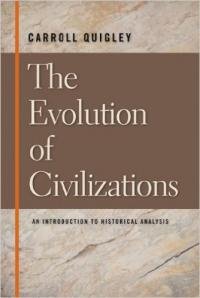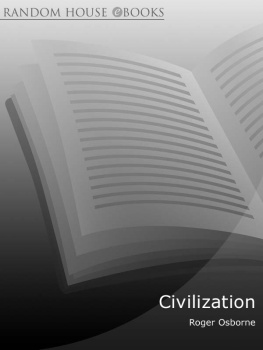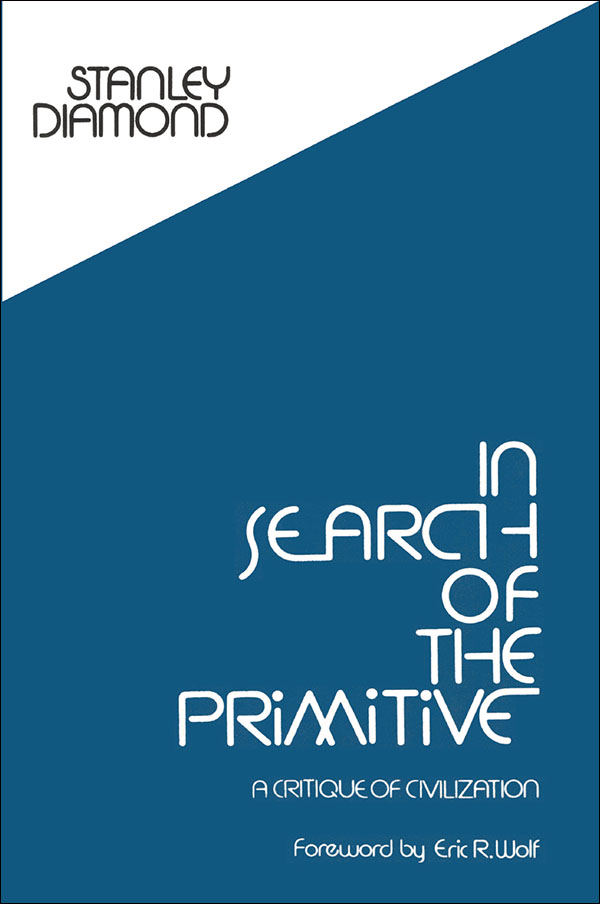Contents
In Search of the Primitive
In Search of the Primitive
A Critique of Civilization
Stanley Diamond
Foreword by Eric Wolf

First published 1974 by Transaction Publishers
Published 2017 by Routledge
2 Park Square, Milton Park, Abingdon, Oxon OX14 4RN
711 Third Avenue, New York, NY 10017, USA
Routledge is an imprint of the Taylor & Francis Group, an informa business
Copyright 1974 by Taylor & Francis.
All rights reserved. No part of this book may be reprinted or reproduced or utilised in any form or by any electronic, mechanical, or other means, now known or hereafter invented, including photocopying and recording, or in any information storage or retrieval system, without permission in writing from the publishers.
Notice:
Product or corporate names may be trademarks or registered trademarks, and are used only for identification and explanation without intent to infringe.
Library of Congress Catalog Number: 72-82195
ISBN 13: 978-0-87855-582-6 (pbk)
The author is grateful for permission to reprint portions of this book which originally appeared in the following publications:
The Politics of Field Work originally appeared as Nigerian Discovery in Reflections on Community Studies edited by A. Vidich, M. Stein and J. Bensman (John Wiley, 1964).
Anthropology in Question is a revised and expanded version of Man in Question from Reinventing Anthropology edited by Dell Hymes (Pantheon Books, 1972).
The Search for the Primitive is a revised and expanded version of an essay that appeared in Mans Image in Medicine and Anthropology edited by Iago Gladston (Library of the New York Academy of Medicine, 1963).
Plato and the Definition of the Primitive first appeared in Culture in History: Essays in Honor of Paul Radin edited by Stanley Diamond (Columbia University Press, 1960).
The Uses of the Primitive was first published in Primitive Views of the World edited by Stanley Diamond (Columbia University Press, 1964).
The Rule of Law versus the Order of Custom, is revised from an essay in The Rule of Law edited by Robert Paul Wolff (Simon and Schuster, 1971).
Job and the Trickster first appeared as the introduction to a new edition of The Trickster by Paul Radin (Schocken Books, 1972).
What History Is originally appeared in Patterns and Process in Culture by Robert Manners (University of Chicago Press, 1964).
To the memory of my sister
CONTENTS
The dream of reason produces monsters.
Goya
General and abstract ideas are the source of the greatest errors of mankind.
Rousseau
Shakespeare cared little for the State, the source of all our judgments, apart from its shows and splendours, its turmoils and battles, its flamings-out of the uncivilized heart.
W.B. Yeats
The crisis in the Western world and its imperial hinterland, which is also the crisis of humanity, cannot be confined to social, economic or technological problems; it inheres in our definition, our very understanding of man. We live in what we pridefully call civilization, but our laws and machines have taken on a life of their own; they stand against our spiritual and physical survival. Our politics oscillate between the consolidation of bureaucratic controls and outbursts of impotent, if symbolic, fury. The rule of law, as Stanley Diamond says, represents the chronic symptom of the disorder of institutions. Science, which was to liberate us, imprisons us in abstractions; passion and compassion atrophy in the hands of professionals who turn their concepts into fetishes. So-called students of man, who study man because he has become the problem, are driven by a search for abstract models within which to capture and hold fast the flow of human reality. What began as a fraternal endeavor to understand men in their concrete similarities and differences, in order to comprehend human possibilities, is rapidly becoming one of the policy sciences, a discipline of human control, the very denial of humanity. Prometheus yields to Procrustes both in our culture at large and in our study of it.
It is this growing denial of human freedom, the diffusion of the false consciousness created by the increasingly technetronic order (to use Zbigniev Brzezinskis appalling and approving term) that Stanley Diamond raises his voice against in these essays.
In his opening essay The Politics of Field Work, Diamond reaffirms that field work is the ground for human encounter, ultimately encounter with ourselves, not the fixing of signs on a piece of paper or upon magnetic tape by an investigator who turns himself into a recording machine. The anthropologists hut provides no neutral ground, constitutes no privileged sanctuary. He and his tribal interpreter meet in a real world, tense with exploitation and the exercise of power. They cannot hide from each other; there is no hiding place. Determining one another, each asserts for the other his humanity and human possibilities. The field experience is, then, a political experience; it demands that the anthropologist expose the forces that imprison him and that he seek to expose the forces that imprison the native.
But what must an anthropology look like if it is to be a study of human freedom and liberation, of human possibility and necessity? It must have a sense of shared humanity: It is our consciousness, as a species, that enables us to empathize with what we do not directly share, says Diamond. Anthropology requires speciational consciousness so that the anthropologist can approach other societies with the confidence that his humanity is equal to the task of registering differences. It must address itself to real human beings, not empty concepts, for it is human decisions which create the alternatives that are open to choice. Human beings not only reflect cultural events but synthesize experience and have the capacity to react in creative and unexpected ways. (See What History Is.) Such a new anthropology would have to affirm mans capacity for re-creation in confrontation with the high priests of determinismpoliticians and professionalswho preach resignation before the tyranny of their official definitions of reality. Such an anthropology must also turn its back on British social anthropology, ever obsessed with the problem of (colonial) order, the concerns of the traffic cop and the prison matron. It will have to distance itself also, as Diamond does in his discussion of Lvi-Strauss, from a Cartesian anthropology that strips cognition of meaning and affect, denies the integral relation of theory and praxis, and thus represents men as the eternal victims of their brains, ceaselessly driven to assemble and disassemble mental elements, forced forever to enact these ad hoc schemes in an imitation of life. These are, Diamond tells us, images of our own alienation through which we ceaselessly redefine and refine the problems of our own time.
Butand this is the central question of these essayswhere shall we find human beings not alienated from their passions and their work? In primitive cultures, answers Diamond. It is through communication with the primitives of past and present, and with our own primitive possibilities, that we can create an image, a vision, a sense of a life once led by all men and still led by some, a life richer and more intricately human than our own. To do this we must learn to see that life from within, as these fellow human beings still see and feel it; we must learn the uses of the primitive. Thus Diamond sets for us and for himself a triple task; to comprehend the primitive world as primitives do, to see our world from the vantage point of the primitive, and to link this understanding to the unexpressed aspects of our nature. For Diamond, then, the primitive is both a historical phase in mans career, and an existential aspect of his being. If primitive peoples created societies that exhausted a whole range of human possibilities, civilized men have failed in the equivalent task. It is from this multi-dimensional vantage point that Diamond defines and contrasts primitive and civilized behavior in The Search for the Primitive, and The Rule of Law Versus the Order of Custom. It is in this perspective that he discusses, in a brilliant and representative essay, Platos






